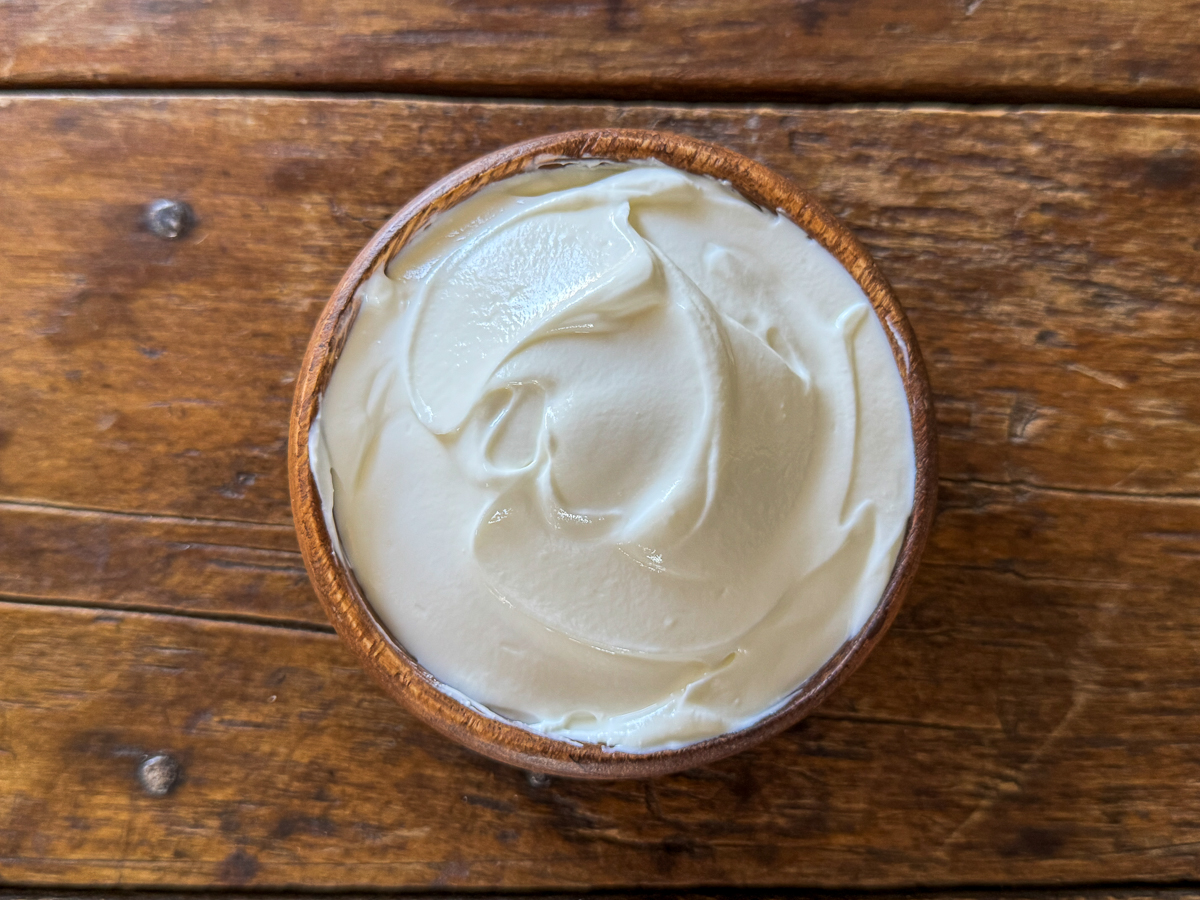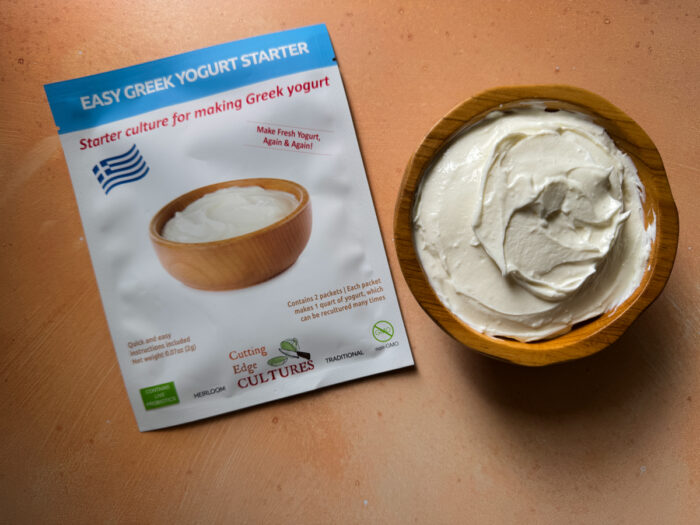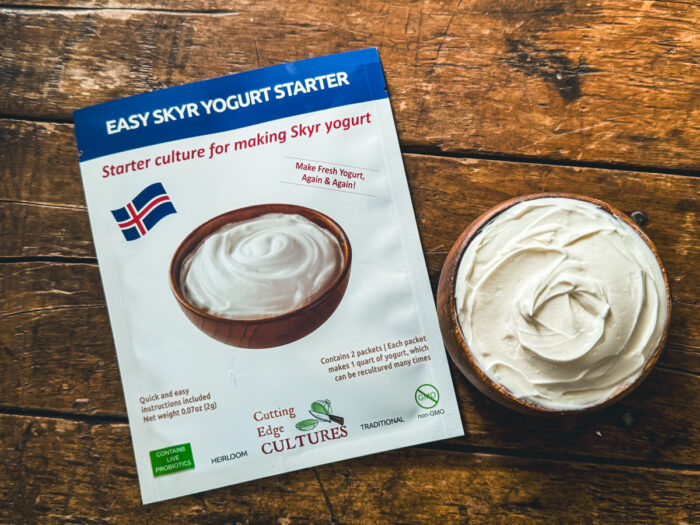
Nutritional Count of Skyr and Greek Yogurt
Yogurt: The Everyday Superfood That Transforms Milk into Magic

Yogurt is one of nature’s most incredible transformations. Whether made with low-fat milk, high-fat milk, or strained to become thick and creamy, yogurt becomes so much more than just milk—it becomes a probiotic-rich, healing food. Through fermentation, the good bacteria in yogurt convert the milk's natural sugars into lactic acid, breaking down the lactose and making it easier to digest—even for those who are sensitive.
But here’s the miracle: these living cultures don’t just preserve the milk—they pre-digest it, making nutrients more bioavailable so your body can absorb them effortlessly. That means quicker nourishment for your cells, support for your gut, and a gentle helping hand for detoxification and healing. It’s a true food of transformation—simple, powerful, and made right in your own kitchen. 🥣💛
When Skyr and Greek yogurt are strained, the whey (liquid) is removed, concentrating the protein, fat, and calories per serving, while reducing lactose and carbohydrates.
🥛 Sugars (including lactose) are a subset of carbohydrates.
That means:
Total Carbohydrates = Sugars (natural or added) + Starches + Fiber (if any)
In yogurt and milk, the sugar is almost entirely lactose, the natural milk sugar.
When you strain yogurt, much of the lactose (which is water-soluble) is removed in the whey, reducing the total carbs and sugar content.
Below is a nutritional estimate per 1 cup (240g) of strained yogurt. This reflects a thick, fully strained version—like what you'd get from using a cheese strainer or cheesecloth.
Greek and Skyr yogurts are very similar in protein, fats, and carbs. Skyr yogurt is slightly higher in protein, since it uses different bacterial cultures than Greek yogurt.
-
While this doesn’t directly raise protein, it affects the texture—Skyr is denser, which allows it to hold more protein per spoonful.
Strained Greek Yogurt (whole milk 1 cup)
- Calories: ~220
- Protein: ~19–25g
- Fat: ~10g
- Carbohydrates: ~3–6g
- Calcium: ~20–25% DV

Strained Skyr (nonfat or low-fat traditional Icelandic style 1 cup)
- Calories: ~120–140
- Protein: ~20–26g
- Fat: ~0–2g (traditionally made from skim milk)
- Carbohydrates: ~3–6g
- Calcium: ~25–30% DV

Lactose Reduction During Fermentation
💡 Does Lactose Reduce the Carb Count?
No — lactose is included in the total carbohydrate count, not separate from it. However, how your body uses lactose is a little more complex, especially in fermented dairy like yogurt or kefir.
🫙 Here's how it works:
In Milk (Unfermented):
- Lactose is a disaccharide (glucose + galactose).
- It's fully counted as a carbohydrate and absorbed as sugar after being broken down by the enzyme lactase in your small intestine.
- Total carbs = lactose + any other sugars (usually minimal in milk).
In Fermented Dairy (Yogurt, Kefir, etc.):
- During fermentation, bacteria consume lactose as their food.
- They convert it into lactic acid, which gives yogurt its tangy flavor.
- This reduces the actual lactose content — sometimes by over 70% depending on fermentation length.
- Even though the label might still show similar carbs, much of the lactose has been “predigested.”
✅ So Does Your Body Use It the Same Way?
- ✅ Fewer "active carbs" for your body to digest
- ✅ Lower blood sugar impact
- ✅ Easier digestion, especially for lactose-intolerant people
Yogurt fermented-per cup
Yogurt when Strained-per cup
Tip: The longer you ferment your yogurt the less sugar (lactose) it contains—and the more probiotics it produces!
Lactic Acid, Lactose, and Carbohydrate Count in Yogurt
Fermenting milk into yogurt or kefir dramatically reduces its lactose content. This makes fermented dairy easier to digest and lower in carbohydrate impact, especially for those with lactose intolerance or blood sugar concerns.
Tip: The longer you ferment your yogurt, the less sugar (lactose) it contains—and the more probiotics it produces!
Listen To My Podcast
In this episode, we're diving into the creamy, probiotic-rich world of Skyr and Greek yogurt—two powerhouse foods that do more than just nourish... they transform. You'll discover how these thick, strained yogurts concentrate protein while reducing lactose and sugar, making them easier to digest—even for those who are lactose sensitive. We’ll break down the nutrition per cup, explore the miraculous process of fermentation, and explain how these yogurts are pre-digested by living cultures that make nutrients more bioavailable for your body.
💡 Why is Skyr higher in protein than Greek yogurt?
💡 Does straining yogurt reduce sugar and carbs?
💡 How does fermentation impact digestion and blood sugar?
Whether you're looking to build muscle, support gut health, or simply enjoy a rich, creamy snack that loves you back—this is the episode for you.
✨ Simple. Powerful. Deliciously healing. Tune in and learn how to turn milk into magic, right in your own kitchen.
Are you on the list?
Sign up today and I'll send you my free Getting Started Guide!
Each week I'll send you updates, tips, recipes, and more! You might even be a winner of my weekly giveaway! (starter cultures, memberships, and more!)
Come be a part of my cultured food family!


